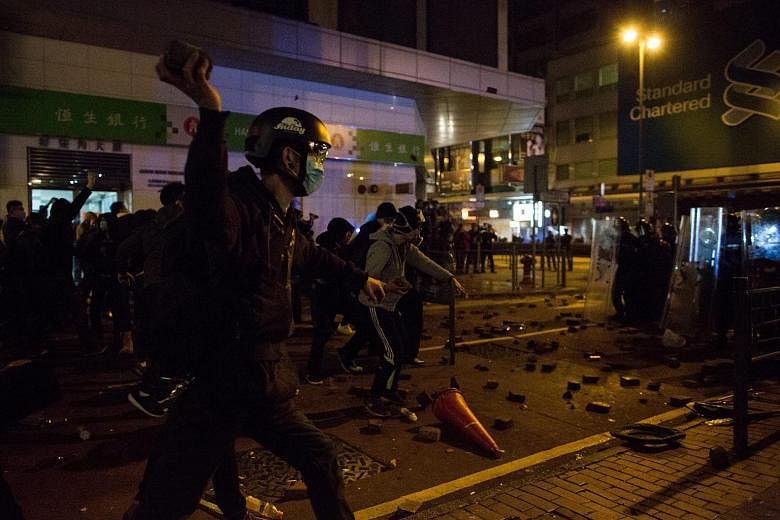Beijing has blamed the mayhem that erupted in Hong Kong during the Chinese festive period on a "local radical separatist organisation".
Chinese state media has also accused radical "localist" groups of staging the violent riot in Mongkok district and hurting the city's core values of civility and rule of law, although analysts say Beijing might have to take some blame, too, for stirring local unhappiness.
In a statement yesterday, China's Foreign Ministry spokesman Hong Lei lauded Hong Kong police for taking "effective measures" to quell the violence.
"The violence quickly subsided as the Hong Kong police took effective measures in a professional manner with restraint and in accordance with the law," said the spokesman, adding that the central government firmly supports the Hong Kong government and the police.
The Xinhua news agency warned that Hong Kong's tourist industry, economy and image would suffer after the so-called "fishball revolution" which began on Monday night and left some 130 injured when it ended the next morning.
"When the respect for law and the peaceful and rational forms of expression are discarded, it is imaginable that... social stability has been damaged. The foundations for Hong Kong's survival have been shaken, too," Xinhua added in an editorial on Wednesday.
The Global Times, which is linked to the Chinese Communist Party, said Hong Kong hawkers were not the protagonists in the latest fracas. They were mere actors pushed into the spotlight by others, it said, as it accused radical political groups of turning violent against food safety inspectors trying to clear the unlicensed hawkers from the streets.
Analysts say Beijing might have deepened public discontentment through its alleged interference in the city's internal affairs.
For instance, five Hong Kong- based booksellers who had gone missing - allegedly over a new book on Chinese President Xi Jinping's past romances - resurfaced recently on the mainland.
"It is likely that some Hong Kongers felt no qualms in disregarding the law, thinking that Beijing had given scant respect as well," Professor Chen Guanghan, who heads a Hong Kong and Macau research centre at the Sun Yat-sen University in Guangzhou, told The Straits Times.
But analysts say Beijing should not intervene - at least not publicly - to avoid aggravating the situation and should instead focus on refining its policies to boost Hong Kong's economy and the people's livelihood.
Dr Zou Pingxue, a member of the Chinese Association of Hong Kong and Macau Studies, said any interference by Beijing might provide fodder for "localist" groups, which seek to protect Hong Kong's identity and advocate its independence from the mainland.
"Also, the Hong Kong government is primarily responsible for improving the situation, which may not be that dire as the majority of the society has condemned the violence," said the Shenzhen University law professor.

